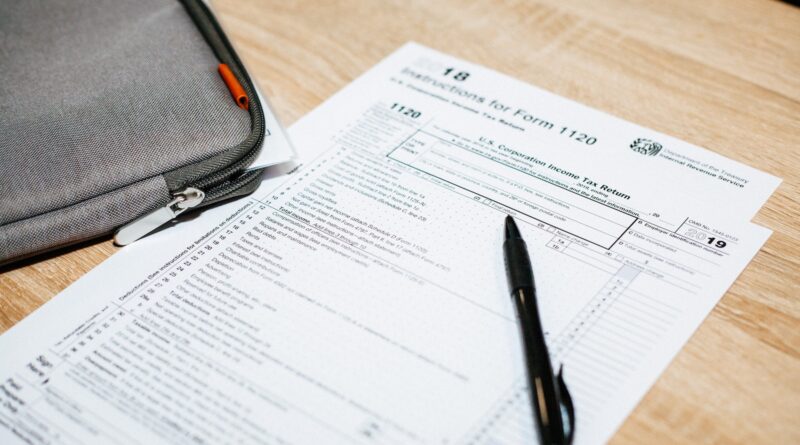Depreciation Dilemmas: Maximizing Tax Benefits in Real Estate
Understanding and optimizing tax benefits in real estate is fundamental to achieving financial success in your ventures. By proactively addressing Depreciation Dilemmas, you can minimize your tax liabilities, increase cash flow, and stay ahead in the competitive real estate market.
In this comprehensive guide, we will explore the essential steps to maximize tax benefits in real estate by overcoming depreciation dilemmas.
As a master in Tax Related Considerations, we will explain each concept in easy-to-understand language, ensuring you have a solid understanding of this crucial aspect of real estate investment.
So, Let’s delve into some common obstacles you may encounter and the practical strategies to overcome them.
The Importance of Optimizing Tax Benefits
Understanding and optimizing tax benefits in real estate is fundamental to achieving financial success in your ventures.
By proactively addressing depreciation challenges, you can minimize your tax liabilities, increase cash flow, and stay ahead in the competitive real estate market. Let’s delve into some common obstacles you may encounter and the practical strategies to overcome them.
Depreciation Dilemmas Challenges
Challenge 1: Identifying Depreciable Assets
When you own real estate, it consists of not only buildings but also other assets like land, furniture, and machinery. The challenge lies in distinguishing between depreciable and non-depreciable assets. Depreciable assets can be used to claim tax deductions over time, while non-depreciable assets cannot.
Solution: To identify depreciable assets accurately, conduct a comprehensive property assessment. Seek guidance from tax experts who specialize in real estate taxation. They can help determine which components qualify for depreciation, ensuring you don’t miss out on potential tax deductions.
Challenge 2: Calculating Depreciation Properly
The world of depreciation calculations can be confusing, especially for beginners. Different depreciation methods, such as Straight-Line Depreciation and Modified Accelerated Cost Recovery System (MACRS), have specific implications on your tax deductions.
Solution: To navigate this challenge, enlist the help of tax consultants with expertise in real estate taxation. They will ensure precise calculations and select the most advantageous depreciation method for your situation. Properly calculated depreciation will lead to significant tax savings in the long run.
Challenge 3: Addressing Recapture Taxes
When you sell a property that has enjoyed depreciation deductions, the gains obtained from those deductions may be subject to recapture taxes. Recapture taxes require you to repay part of the tax benefit at a higher tax rate.
Solution: To mitigate the impact of recapture taxes, develop a sound exit strategy. Consider reinvesting in qualifying replacement properties under Section 1031 of the tax code. This allows you to defer recapture taxes and maintain your cash flow while strategically expanding your real estate portfolio.
Challenge 4: Dealing with Property Improvements
Property improvements, such as renovations or upgrades, add value to your real estate investments. However, they can also complicate depreciation calculations. Different components of the property may have varying depreciation schedules.
Solution: Keep meticulous records of all property improvements, categorizing them correctly as either repairs or capital improvements. Engage in cost segregation studies, which involve identifying components with shorter depreciation lives. By accelerating depreciation on eligible improvements, you can enhance your tax savings and manage cash flow more effectively.
Challenge 5: Navigating Passive Activity Loss Limitations
Real estate investors who engage in rental activities may face Passive Activity Loss (PAL) limitations. PAL rules restrict the ability to offset rental losses against other income, potentially reducing your overall tax benefits.
Solution: To navigate PAL limitations, aim to actively participate in property management or qualify as a real estate professional. By meeting these criteria, you can bypass PAL limitations and fully utilize your rental losses to offset other income, resulting in more significant tax deductions and higher cash flow.

Real-World Examples of Successful Tax Strategies
Let’s explore some real-world examples of how savvy investors have overcome depreciation dilemmas to maximize their tax benefits:
- Example 1: John purchased a commercial property with a substantial renovation cost. Through a cost segregation study, he accurately classified each component of the renovation. This allowed him to claim accelerated depreciation on certain elements, resulting in considerable tax savings in the early years of ownership.
- Example 2: Mary faced passive activity loss limitations due to her rental properties. However, she qualified as a real estate professional by meeting specific criteria. As a result, Mary was able to offset her rental losses against other income, substantially lowering her overall tax liability.
The Benefits of Overcoming Depreciation Challenges
Successfully overcoming depreciation dilemmas can lead to a host of compelling benefits:
- Substantial Tax Savings: Maximizing depreciation deductions significantly lowers your taxable income, resulting in substantial tax savings.
- Improved Cash Flow: Lower tax liabilities translate to enhanced cash flow, allowing you to reinvest in your real estate ventures and expand your portfolio.
- Competitive Edge: A strategic tax approach sets you apart from other investors, strengthening your financial position and long-term profitability.
Dispelling Common Misconceptions
Let’s address some common misconceptions surrounding depreciation and real estate taxation:
- Misconception 1: Depreciation is a one-time benefit.Fact: Depreciation is an ongoing tax benefit that spans the useful life of eligible assets, leading to consistent tax savings.
- Misconception 2: Depreciation only applies to buildings.Fact: Depreciation extends to various tangible assets, such as machinery, furniture, and property improvements, presenting additional opportunities for tax deductions.
Strategize Your Tax Plan for Optimal Results
To make the most of depreciation benefits and optimize your real estate tax strategy, consider the following steps:
- Engage with Tax Experts: Collaborate with experienced tax professionals who specialize in real estate taxation. They will navigate complex depreciation rules and identify customized tax solutions tailored to your unique situation.
- Maintain Accurate Records: Keep meticulous records of property improvements, expenses, and depreciation calculations. Accurate records will substantiate your tax claims and protect you in case of an audit.
- Explore Cost Segregation Studies: Consider conducting cost segregation studies to accelerate depreciation on eligible components. This will result in enhanced tax savings and improved cash flow.
- Strategize Your Exit Plan: Develop a well-thought-out exit strategy that accounts for recapture taxes. Explore the benefits of a Section 1031 exchange to defer recapture taxes and maintain liquidity.
- Stay Informed: Tax laws and regulations can change over time. Stay updated with the latest tax-related considerations to ensure your strategies remain effective and compliant.
By embracing these steps and proactively managing your tax strategy, you can unlock the full potential of depreciation benefits and elevate your real estate investment game to new heights.
Join the Discussion
We invite you to join the conversation and share your experiences with overcoming depreciation challenges. Have you utilized any specific strategies to maximize your tax benefits in real estate? Let’s learn from each other and build a strong community of knowledgeable investors. Share your insights and thoughts below!
Empowering Your Real Estate Journey
Maximizing tax benefits through effective depreciation strategies is just one aspect of a successful real estate investment journey. As a master in Tax Related Considerations, I’m here to empower you with expert advice and insights every step of the way. Keep exploring, learning, and growing, and your real estate endeavors will flourish.
